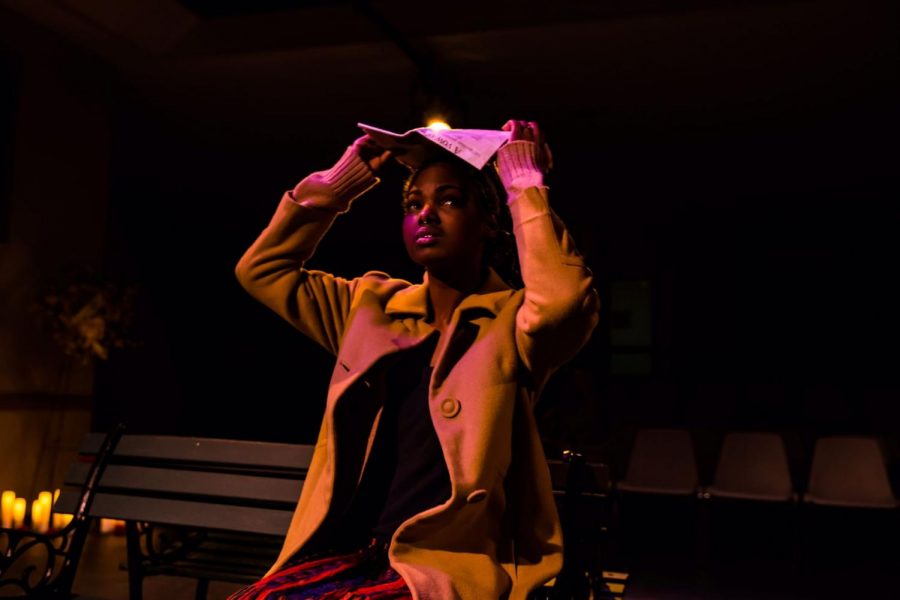‘A Song for Coretta’ delivers connections
Kristina Gaston plays Mona Lisa in the School of Theatre and Dance’s studio production of “A Song for Coretta.”
February 20, 2017
DeKALB | Variations of womanhood and generational stories intertwine in “A Song For Coretta,” performed by the School of Theatre and Dance this past weekend in the Holmes Student Center, Diversions Lounge.
The play was originally written by Pearl Cleage and was adapted by Bethany Mangum, who also directed the production. The play links five women from all over the country who have been touched in some way by Coretta Scott King, the wife of the famous activist and inspirational leader Martin Luther King, Jr. The five women gathered at Coretta’s wake to honor a woman who still made an impact on their lives through things such as the civil rights movement, the LGBTQ community and the women’s movement.
“The characters wanted to fill a piece of their soul or to say goodbye to [Coretta],” Mangum said. “[They wanted] to get an answer for something, and then they get into the space outside of the church and make connections that they’ll have for life based on this one woman’s life.”
Mangum said her goal for production and her actors was to tell the story in context without having to devalue the message.
“Pearl Cleage, the playwright, is very poetic in the way that she describes all of these things and the way she writes text, and it was very much based around having these women’s voices heard because the story is based on actual women that she knew,” Mangum said.
“A Song for Coretta” had an all-female cast and was able to show a different type of sisterhood and community between each of the characters.
Junior acting major Taylor Green said she was able to tap into her character, Helen, easily because Helen reminds her of her grandmother.
“When I first got the script I said to myself, ‘This is my granny,”’ Green said. “It was all about the age difference and channeling too much anger because I was afraid the audience would hate my character after this, but when you really look into Helen, we can see that she’s coming from a place of love and experience based on what she’s been through.”
Sophomore acting major Sonjanae Ashford said the most meaningful part about being in this production was tapping into her character as well and bonding with her castmates.
“I really honored the fact that [Zora, my character,] listens,” Ashford said. “She’s here to appreciate everybody’s story, and I feel as though that’s the most important part about this play because without their stories, we wouldn’t know anything.”
“A Song For Coretta” ran through Sunday and will make a comeback during Women’s History Month on March 25, sponsored by the Women’s Center.
Mangum said she hoped the audience got the message from the production’s run, as that is most important to her.
“Without people attending theatre, our stories will go untold,” Mangum said. “That’s not something that Americans should be willing to give up, and I think that we need to celebrate who we are individually and fight for those rights.”







